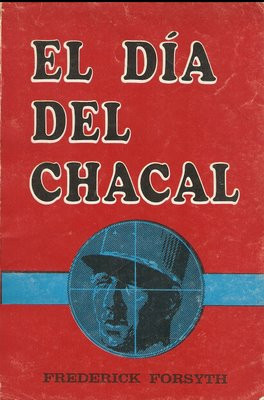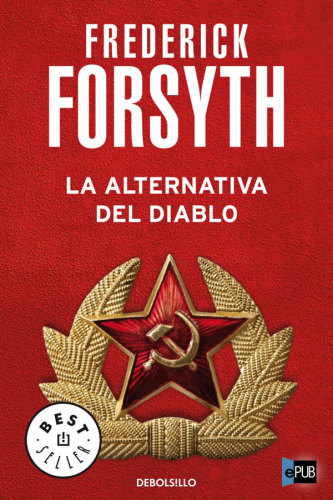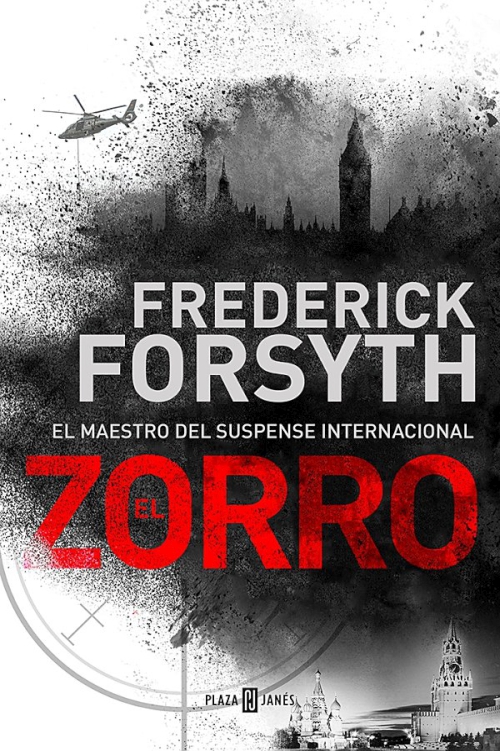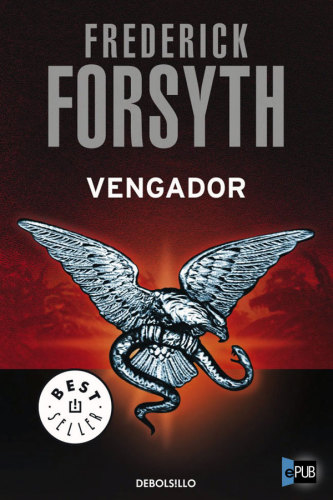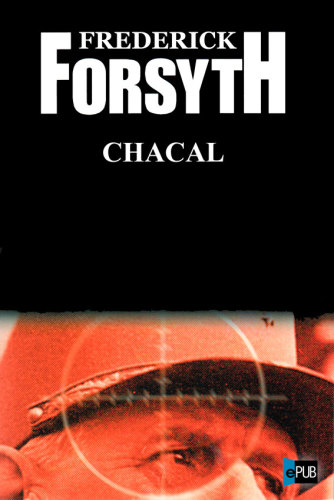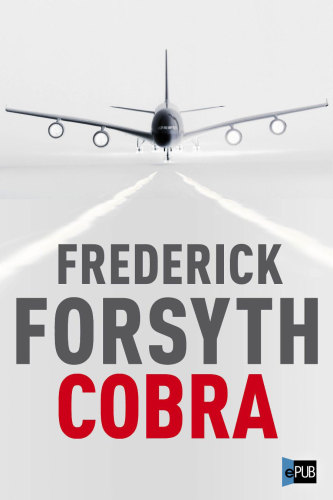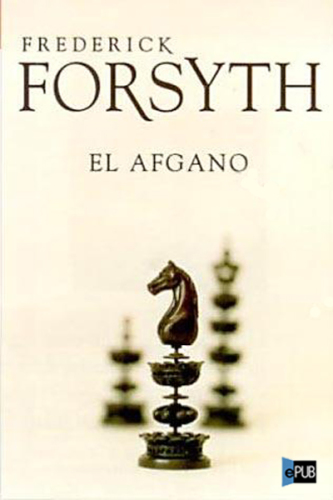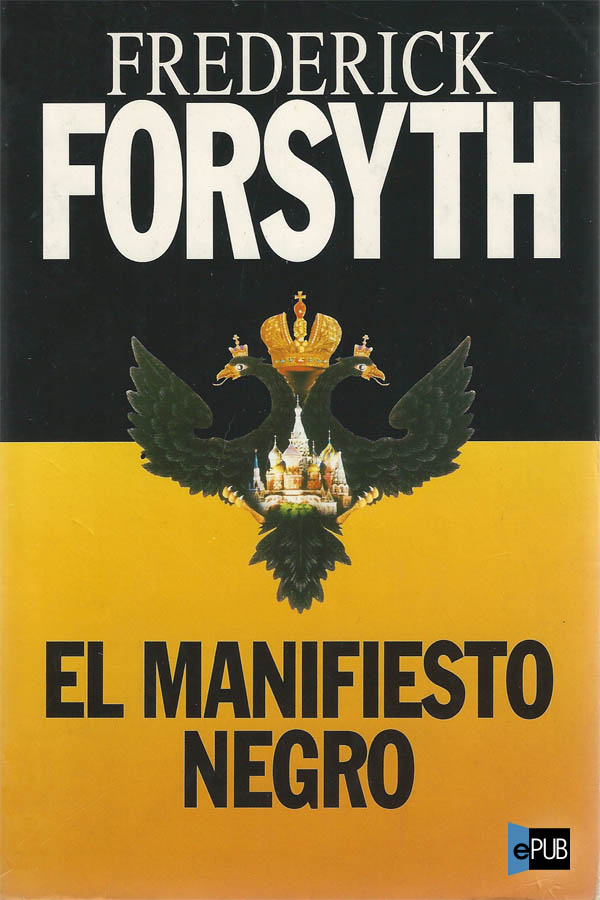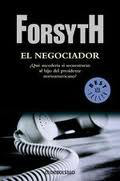oleebook.com
Los perros de la guerra de Forsyth Frederick
de Forsyth Frederick - GÃĐnero: Ficcion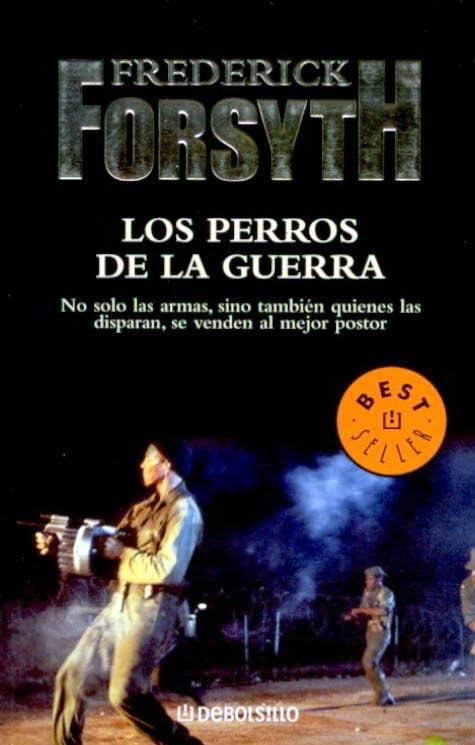
Sinopsis
El mundo de los mercenarios constituye el telÃģn de fondo de esta gran obra de Frederick Forsyth. En primer plano, una anÃĐcdota de trepidante acciÃģn descubre algunos aspectos siniestros y poco conocidos de ciertas actividades: minerÃa, altas finanzas, operaciones bancarias y el mundo de los traficantes de armas. De ParÃs a Ostende y Marsella, donde son reclutados los mercenarios; de Berna a Brujas, donde se montan las operaciones financieras; y de Alemania a Italia, Grecia y Yugoslavia, donde se compran las armas; Forsyth devela, en un viaje literario apasionante, un mundo en el que no sÃģlo las armas, sino quienes las disparan, se venden al mejor postor.
Libros Recomendados - Relacionados
ReseÃąas Varias sobre este libro
I spent fourteen years in the U.S. Army (1986-2000). Approximately seven years in the Army National Guard and Army Reserve and seven years in the Regular Army. I was eighteen when I enlisted in 1986 and I was all about the "action". I had obviously watched too many Arnold Schwarzenegger and Sylvester Stallone movies. By the time I separated from the Army in 2000 I had come to realize a few crucial things about the military and combat operations.
1. Beans and bullets (logistics) are everything. The side that excels in running an effective logistical network might not "win" the conflict, but it will probably at least ensure that when it's time to pull out the troops they'll do it on their own terms. See Iraq (2003-2011).
2. For every soldier whose mission is to engage in active combat operations against an opponent there are five (or more) soldiers and civilians whose job is to get that soldier (marine, airmen, sailor etc.)into the combat zone and keep that soldier supplied and cared for.
3. Wars are expensive.In more ways than one.
4. Combat operations consume vast amounts of resources. Money, lives, food, fuel, raw materials and so on. (See #3).
5. The devil is in the details. Effective organization and planning is very very important. Without it you don't have a chance.
6. A soldier's life is not a glamorous one.
Mr. Forsyth does an excellent job of showing what goes into organizing a professional and effective military force and combat operation.It's a tedious and time consuming job. He shows that a one hour combat operation involving a few dozen soldiers entails several thousand hours of planning and training. The details that many have found to be tedious are part of war. How much the details of the International Arms Trade has changed over the past forty years I can't say. Obviously technology has changed. However, one thing that hasn't changed is the side that has the best chance of winning is the side that is the best equipped, organized and led. The Dogs of War isn't a Tom Clancy novel. It's a unsentimental look at a military operation. Albeit a mercenary operation.
It might be a little dry, but then so is real life.espionage military-fiction seventies-classics109 s Chris Ingalls62 4
Oh, man. After almost 20 years of reading and enjoying Forsyth's globe-trotting espionage/mystery thrillers, I knew I was bound to come across a clunker, and this one's it.
In a way, this book is similar to his deservedly acclaimed "Day of the Jackal" in that in concerns the plot and execution of a serious crime for political gain. While "Jackal" is about the assassination of French President Charles De Gaulle, "Dogs of War" concerns the attempted coup d'etat of a small, fictional African country in order for a British mining company to take advantage of the country's seemingly endless supply of platinum. In order to do this, the company hires mercenaries to invade the country and depose its dictator.
Sounds a great yarn, right? WRONG! Great idea for a story, horrible execution. First of all, Forsyth seems to have come across the problem that makes Tom Clancy's books so insufferable: endless, monotonous details about a the planning and execution of an operation. We get it, Freddie: you did your research. Now, how about some interesting characters and dialogue? How about some suspense, maybe?
While "Day of the Jackal" went into great detail about certain aspects of planning for the operation, it was on a much smaller scale and therefore, much easier to take in. Here, it's torture. Also, "Jackal" told its story from the point of view of both the assassin and the police chasing him. It's a fantastic cat-and-mouse thriller. Here, there's nobody to root for. It's incredibly dull.
The book does have it's rare moments, and I particularly enjoyed the twist ending. But other than that...meh.
Forsyth wrote great novels before this one: "Day of the Jackal," "The Odessa File." He also wrote many great novels since: "The Negotiator," "The Deceiver," "The Fourth Protocol," "Icon," among others. Also, his short story collection, "No Comebacks," is definitely worth checking out. But he seemed to be sleepwalking through this one.29 s1 comment JimAuthor 7 books2,050
It's been a lot of years since I last saw any part of the movie & more since I read it, but it aged very well. As usual, Forsyth takes us through a long, convoluted setup that is fascinating, very much the same structure as The Day of the Jackal. The epilogue explains a lot, but... well, I can't say without a huge spoiler. Motivations that don't make sense will, trust me.
While most of my shelf choices are obvious, I put it on the mystery-thriller shelf because it has a lot of that in it. Who is doing what & why is often a question. Plus, there's a scene that would have made Luca Bragi (of The Godfather) proud.
The setup of the novel is wonderful. There's nothing magical or easy about planning or staging this operation & the descriptions of the operations, people, & scenery read as if they were real. It's practically a text book for staging a revolution, just as The Day of the Jackal was for assassinations. (This last sentence was mine, but the Wikipedia articles for the book has almost the exact same sentence at the bottom. Great minds think a.)
I really d the 1980 movie starring Christopher Walken & Tom Berenger,
http://en.wikipedia.org/wiki/The_Dogs...
but it isn't nearly as good as the novel because there were a few critical changes that sucked a lot of the juice out of it. If you're familiar with both (spoilers abound for both), I'd recommend reading the Wikipedia entries. Here's the one for the book
http://en.wikipedia.org/wiki/The_Dogs...
Compare the story to the one above for the movie. Huge difference that even Christopher Walken couldn't make up. CAT Shannon is SO much more interesting than Jamie Shannon.
Very well read, although I didn't the English voice at first. Davidson's voice & inflections really fit the story, though.
4+ stars & highly recommended.1audio 2fiction action ...more22 s Martin IguaranAuthor 3 books318
Una de las mejores novelas del autor, hay que leerla hoy en dÃa teniendo en cuenta el contexto histÃģrico de la Guerra FrÃa. Sin embargo, el rol de los mercenarios en Ãfrica no ha cambiado mucho despuÃĐs de la caÃda de la UniÃģn SoviÃĐtica: siguen presentes en muchos paÃses, para respaldar gobiernos dictatoriales, entrenar rebeldes, o proteger los intereses de empresas multinacionales. De modo que mucho de lo que se cuenta en la novela-los turbios intereses en los recursos naturales africanos, la brutalidad del tirano que llega al poder en una sociedad recientemente descolonizada sin ninguna prÃĄctica para el gobierno independiente-sigue en gran medida vigente. 15 s Chris1 review2
While many of the point to an abundance of information as a downfall I find this to be the major strength of the novel. You are taken on a realistic journey by Forsythe through the shadowy thoroughly researched underworld ending in an unexpected but enjoyable climax.
If you enjoyed the details of fake passwords and the black market arms trade in "Day of the Jackal" then this book will ly be even more enjoyable. 14 s Randal262 1 follower
Sir James Manson, a scheming mining tycoon, hatches a plan to topple the government of a tiny African country in order to secure the mining rights to Crystal Mountain. This particular mountain contains an enormous deposit of platinum, and through a series of intricate plans involving Swiss banks and the manipulation of shares, Sir Manson plans to exploit the platinum find and make billions.
To carry out the coup on corrupt Zangaran president Kimba, Sir Manson hires Cat Shannon, a ruthless mercenary, and a professional in the business of war.
This book has a very interesting premise, and it begins well, with Cat Shannon and his cohorts defeated at the end of an unspecified African war. The atmosphere created in these first scenes really draws you in. Each of the mercenaries has their own unique personality, and the character of Shannon makes a able, interesting protagonist.
After the first scene, the mercenaries make their way out of Africa and back to their various home bases. And here things begin to bog down. As many have pointed out, the level of detail that goes into planning Manson's grand scheme is insanely meticulous and realistic (which means real life, it's monotonous and tedious at times).
Some of the pros of this book are:
*Any of the scenes set in Africa.
*The mercenaries themselves.
*The characters of Shannon and Endean and Roux.
*The attack on Zangaro (when it finally, at long last, happens)
*The ending. Did not see it coming, and it ALMOST made all the lead up worth it.
Some of the cons of the book:
*There are not enough scenes in Africa! And way too many in places Belgium and Switzerland (boring).
*Pacing. Terribly slow.
*Lack of action for significant portions of the book.
*Very little war for a book with such a promising title.
Overall, I understand that the focus and emphasis is on realism here. But sometimes too much realism in writing is just downright boring. This may be the way that a real operation this might be planned, but it reads boring. Add a little action and excitement, and don't spend 50 pages explaining to me how each and every single piece of equipment was bought and paid for. I wanted to read a thriller, not somebody's budget.13 s John Farebrother114 31
Of all Forsyth's novels, his first two are for me by far the best, and also the most authentic. Here he combines his skills as a master story-teller with an intimate knowledge of the esoteric and closed world of mercenaries, and of Africa. It is clear that his research for this novel went far beyond a desk study. Readers of his non-fiction work Biafra Story will know that he is no stranger to Africa. All in all, a ripping yarn.10 s Abubakar Mehdi159 230
I picked this book after reading about Forsyth and the way he does great amount of research before writing a book. Intrigued, I bought this book and was sorely disappointed. The story is basically about a modern day Francis Drake (or Robert Clive) called James Manson, who discovers that in order to extract copper worth 10 billion dollars from a distant african state, he'll have to overthrow the current President and replace him with a puppet of his choosing. All that, before the Russians learn about the whole affair. So he hires a group of mercenaries to execute this plan.
Now, this is where the story was supposed to get exciting and thrilling, but well, it was anything but exciting. Hundreds of pages with long lugubrious descriptions of how Swiss banks work, how shell companies are used to back dubious activities and how mercenaries get their weapons and ammunitions. The dialogue is monotonous, characters lack dimension and the plot lacks the strength one expects from a spy-thriller. And frequent indulgence in pointless existential gibberish.
A Total waste of time.10 s Bettie9,989 10
There was a film made - who knew - and starring, wait for it, Christopher Walken and we all love him since Mousehunt and that fab Fatboy Slim 'Weapon of Choice' video.
Description: In a remote corner of Zangara, a small republic in Africa, lies Crystal Mountain. At certain times of the day the mountain emits a strange glow. Only Sir James Manson knows why. The mountain contains ten billion dollars worth of the world's most valuable mineral, platinum.
Now the only question is, how to get hold of it. Sir James knows how. Invade the country with a band of savage, cold-blooded mercenaries. Topple the government and set up a puppet dictatorship. Unleash the dogs of war!
https://www.youtube.com/watch?v=dyxBx...
adventure film-only military-manoeuvres ...more8 s WernerAuthor 4 books640 Shelved as 'read-in-condensed-versions'
In keeping with my usual practice for books I've only read in a Reader's Digest condensed version, I'm not presuming to review or rate this one. However, I do want to post an interesting background factoid. Zangara, the fictional African nation that serves as the setting here, was directly modeled on the real-life country of Equatorial Guinea, which Forsyth visited just before writing the book, and psychotic President Kimba is a fictionalized version of E.G.'s first president, Macias Nguema, whose dictatorial reign of terror (1969-79) was ended by his overthrow and execution. The country is still a hotbed of tyranny, paranoia and corruption --and The Dogs of War is still a banned book there. :-(8 s Julio Pino1,170 74
Believe it or not, Frederick Forsyth used the huge profits he made from THE DAY OF THE JACKAL to sponsor the mercenary coup that is at the heart of this novel. A group of European "dogs of war" plot to overthrow the vicious dictator of a West African country. (Equatorial Guinea in real life.) Forsyth takes a "white man's burden" approach to the whole business, and the novel, though a page-turner, is definitely not a politically correct approach to post-colonial Africa. At this stage in his prolific career Forsyth was still a cynic, not the apologist for imperialism that he became after Reagan's election, and Thatcher's.8 s2 comments John491 15
Slow but interesting 8 s2 comments Christopher Saunders958 881
Frederick Forsyth's The Dogs of War details the shady world of corporate imperialism and mercenaries, in quasi-documentary fashion. When a British mining magnate discovers that the destitute African nation of Zangaro contains rich platinum reserves, he commissions a crack team of mercenaries to topple the pro-Soviet dictator and install a compliant puppet. Unfortunately, mercenary leader Cat Shannon turns out to have morals and a mind of his own. As The Day of the Jackal compellingly chronicles the work of a professional killer, The Dogs of War reconstructs mercenary chicanery: the double-dealing of corporations who view people, and indeed whole countries as playthings, strong-arming mining concessions, bribing politicians and setting up shell corporations, then hiring armed goons when all else fails. And the mercenaries themselves, a grab-bag of professional soldiers, burned-out criminals and unrepentant ideologues (including ex-Nazis and French fascists) barely able to function without a machine gun in hand. So meticulous is Forsyth's portrait, indeed, that it got him in trouble for his connections to a failed coup in Equatorial Guinea which supposedly doubled as "research." The book avoids being a dry catalogue of misdeeds by Forsyth's reportorial insight: he's fully aware that Third World nations are destroyed by such skullduggery, having witnessed firsthand Western double-dealing in the Nigerian Civil War, and uses Shannon (an improbably moral mercenary) as a mouthpiece for his contempt for unaccountable tribunes of "civilization." No one will mistake Dogs for a progressive tract, but Forsyth's cynicism feels more honest than similar adventure stories, which revel in blood-and-thunder action over moral quandaries (even if the book digresses with a half-baked romantic subplot and a vendetta by one of Shannon's rivals). The final chapter details Shannon's mission, meticulously executed yet still a near-run thing, as Shannon finds a way to carry out his job while keeping his own principles intact. Adapted into a good, if not overly faithful movie with Christopher Walken and Tom Berenger in 1980.2022-reads7 s Austin George81 21
Informative novel about mercenaries, coup d'etat and Equatorial Guinea (but the fictional name of Zangara is used in the novel).
Many on GR stated that they found the very detailed information on the budget, buying of weapons, equipment, ship, miscellaneous items etc before the coup d'etat boring. But I found it very interesting. This is why I don't trust much. One has to read the book oneself to decide whether the book is worth reading or not. A fantastic book.
The title of the book can be a bit misleading. The war part in the book takes up only a few pages. But it didn't matter for me. I was more interested in knowing about Equatorial Guinea (Zangara) than the war part anyway. At times it felt reading a Jeffrey Archer novel when the author was talking about shares and the stock market. Btw, I love Jeffrey Archer novels7 s Andy1,563 515
There's very little action in terms of the "war" in the title, but this is nevertheless an entertaining read. It's a clever satire on world politics, and is unfortunately still relevant. 6 s Pablo DonetchAuthor 6 books59
Me costÃģ terminar, mucho, mucho.
"Los perros de ..." cuenta la historia de Cat Shannon, un mercenario, contratado por un multimillonario inglÃĐs para tomar el control de un paÃs africano en el que se encuentra la "montaÃąa de cristal", una reserva de platino invaluable. El 70% del libro cuenta los preparativos de la misiÃģn que Shannon lidera, lo que lo hace extremadamente ÃĄrido. Una sucesiÃģn infinita y, a muchos ratos, intolerable de nombres, datos y maraÃąas de cÃģmo conseguir armas de contrabando y armar un ejÃĐrcito pequeÃąo.
Es una aspecto que no me gusta mucho de la literatura inglesa, esa aficiÃģn de presentarte miles de lugares recÃģnditos y personajes como si fueran familiares tuyos de toda la vida. Puede ser mi flojera o mi dislexia, pero no me agrada nada.
El final es inesperado, obviamente, decente, pero nada espectacular. EvÃte leerla si puede.5 s Barry Medlin350 30
A good read, but for me not as good as his first two. 5 s Blair Hodgkinson702 20
Frederick Forsyth achieves here for mercenaries and international intrigue what he previously did for political assassination. The author expertly builds tension as he takes a simple premise of coup d'ÃĐtat in a small African nation and completely lays out the underlying motivations of the many participants and traces every thread of necessary effort required to achieve such an enterprise from the hiring of mercenaries to the purchase of arms and materiel. All of this by-the-numbers should be boring, but in the skillful descriptions of Frederick Forsyth they become almost beautiful studies for their own sake, never flagging in their ability to fascinate. The story has a nice twist in the final two chapters that make the payoff all the more worthwhile for the reader.fiction fiction-adventure5 s David LuceroAuthor 6 books195
Read this book after watching the movie again and thought it was a well-written story about mercenaries fighting in Africa. Saw the movie recently and it's still worth seeing as well as reading the book. I enjoy reading books that were made into movies and see how closely the film follows the book.
In Africa a dictator decides not to play ball with powerful mining companies under the control of European investors. The companies hire a merc to visit the nation and create a plan to topple the regime.
It's an action-packed novel with good suspense and drama. Written during a time when snappy dialogue was equally important as action. Thrillers of today could read this book for good research on how to write a book of this genre.4 s Alan Tomkins296 63
Started off with a smartly crafted set up and plot development, then devolved into hundreds of pages of minutely detailed descriptions of how to fund and supply mercenaries: multiple secret European bank accounts, chartering of shell companies, intricate webs of money transfers, arms purchases and smuggling, unfiform purchasing. This could be interesting and informative if explained and summarized in a few chapters, but this actually comprised the bulk of the story over hundreds of pages, told day by day in what I felt was excessively unnecessary detail. It became tedious. The first couple and last couple chapters were exciting and action packed, and there was a satisfactory plot twist at the end, but the bulk of the book was a bit of a chore.7 s Silvana1,182 1,188
Cry 'Havoc' and let slip the Dogs of War!
The idea is interesting, to have mercenaries to conduct a coup in a small (fictitious) country in West Africa. However, Forsyth spent too much time explaining the process in preparing the action. Well, might be useful if one wants to do the same thing in the 70s though. I felt kinda bored reading the middle part of this book. Couldn't care less about all of the business arrangements and Bond-esque love affair. Thank goodness, the last chapter was exciting enough. Interesting twist too.
In conclusion, I definitely prefer this book than its two predecessors, The Day of the Jackal and the Odessa File.military-history used-to-own5 s Muriel72
Do not read this book. At least 200 pages' worth of logistics, money transfers, budgeting, letter writing, postage rates, telephone calls, and issuing of shares. I almost gave up with less than 100 pages to go because it was so infuriatingly boring. I eventually skipped to the end and managed to finish.5 s1 comment Xabi19902,017 1,078
mercenarios5 s Charlie HaslerAuthor 2 books220
Not the best of Forsyth I have read. A good yarn but no Odessa File or Day of the Jackal.4 s Dan SihotaAuthor 2 books21
Until I recently read The Day of the Jackal, I had never really been interested in reading anything by Frederick Forsyth, but after I finished The Day of the Jackal, a book I really enjoyed, I decided to read another Forsyth novel, this time I decided to read The Dogs of War.
A few years ago I saw a film on TV called, The Dogs of War, and despite its well-known cast, which included Christopher Walken and Tom Berenger, the film didn't leave much of a lasting impression, at best, I would describe it as being "okay". The film is about a group of mainly American mercenaries hired to remove an African dictator from power in a fictional country, and a great deal of time is devoted to the action scenes. At the time, I didn't know this film was actually based on a novel, but when I saw this book on a list of works by Forsyth, I knew which book I wanted to read next, and I can honestly say that I wasn't disappointed.
Often, when a book is made into a film, especially when it's backed by Hollywood, a great deal of the original source material is changed so much so that the final result bears little resemblance to the original book. In this case, this is also true of what happened when The Dogs of War was adapted into a film. Two major differences are that in the film the main characters are mainly Americans, while in the book they are from a number of different European backgrounds. The second major difference is that in the book a great deal of time is spent describing the planning of the military action, while very little time is devoted to the action itself. I accept that if the film-makers had attempted to make a more faithful adaptation of the book few Hollywood studios would have agreed to it, fearing that most American audiences wouldn't be interested in a film where most of the characters weren't Americans. Also, I'm not sure if many people would have been interested in a film where so much time was spent on planning. The reason why I have highlighted these two differences is that, in my opinion, these aspects of the story make this book such a great read.
Forsyth's incredible attention to detail, describing the backgrounds of the characters and the motivations for their actions; and the detailed planning involved in a military operation, how the mercenaries obtain all the different equipment they need from different sources and the lengths everyone has to go to in order to cover their tracks; all helps give the story a more "realistic" feel. Although the story is about toppling a dictator in a fictional country, I can't help wondering how much of it is based on real events. It seems highly plausible that such military operations have been planned, or carried out, in a manner very similar to that described in this book. Despite the fact that this book was written a number of years ago and many things have changed since, especially the use of technology, privately financed wars continue to take place today making this such a relevant topic. Whilst it may not be possible to carry out a military operation in a similar manner today, what I do think is still true is the level of difficulty involved, and overcoming such difficulties still requires a great deal of money and involvement of people in positions of power, this would help explain many ongoing conflicts around the world.
Despite the title of the book, as well its main theme, this is not a book full of senseless violence, I highly recommend this book to anyone who enjoys a good read.
4 s Robert388 37
Well-written and boring.
Pat Shannon, a mercenary between jobs, contracts to employ of bunch of his mercenary friends to displace the insane dictator of a small African country with valuable mineral deposits. His employer is bankrolling him in order to install a puppet government that will give him a sweetheart deal on the mining. To do so, he must not only recruit the men and acquire the weapons, ammunition, and transportation, but he must also smuggle them all in and out of countries of origin and transit and arrive in total surprise. Along the way, he must cope with those from his past who really don't love him, as well as treacherous arms dealers.
This book was probably a handy how-to-do-it smuggler's guide when it was originally published. But it is now just a collection of impressive but useless detail. The plot is very thin and the outcome predictable in almost every respect.
Normally, I'm a Forsyth fan.fiction4 s Olethros2,665 490
-Mientras el autor comenzaba a encontrar su rumbo tampoco se equivocaba en exceso.-
GÃĐnero. Novela.
Lo que nos cuenta. Shannon y su grupo de mercenarios pierden en un conflicto en Ãfrica Occidental, pero siguen en el negocio. Cuando un empresario descubre que en cierto paÃs africano hay reservas de platino de un enorme valor, y como dicha naciÃģn estÃĄ en la Ãģrbita soviÃĐtica, decide orquestar un golpe de estado que sirva a sus intereses, decisiÃģn que le llevarÃĄ a conocer a Shannon.
ÂŋQuiere saber mÃĄs de este libro, sin spoilers? Visite:
http://librosdeolethros.blogspot.com....3 s Mike (the Paladin)3,147 1,907
Interesting if dated book. I was even then fascinated by the subject matter..mercenary soldiers. I know that many will disagree, but I've never held the opinion that they are universally "evil". This is an interesting story, it hasn't stayed with me as much as say, The Day of the Jackal, but Forsyth is still one of the best ever writers of suspense, thriller, and techno thriller. 4 s Joseph Spuckler1,510 32
Step by step manual for taking over a West African country for the mineral rights. 1970s soldiers of fortune novel3 s Joe KrausAuthor 10 books111
Autor del comentario:
=================================
